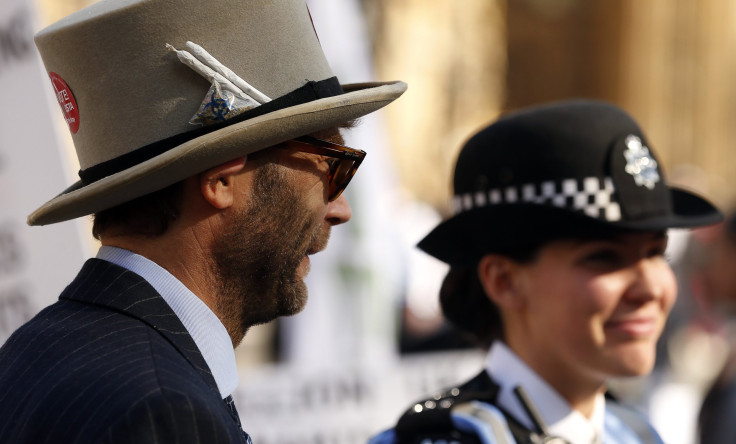Marijuana Legalization: British Government Slams Public Petition To Legalize Weed

The British government has strongly rejected any notion that it might legalize cannabis after more 200,000 people signed an official government petition asking for it to change the law. The petition, which claims Britain could create 10,000 jobs, generate $1.4 billion in taxes and save $650 million on policing, gained more than the 100,000 signatures that automatically forces the topic to be considered for debate in the Houses of Parliament.
"The latest evidence from the independent Advisory Council on the Misuse of Drugs is that the use of cannabis is a significant public health issue," the government’s response said Tuesday. "Cannabis can unquestionably cause harm to individuals and society. Legalization of cannabis would not eliminate the crime committed by the illicit trade, nor would it address the harms associated with drug dependence and the misery that this can cause to families."
A 2013 Ipsos Mori poll showed that 53 percent of Britons supported a softer stance, such as legalizing the production and supply of cannabis or decriminalizing its possession.
UK Govt Response To #Cannabis Petition: Fatuous, Dishonest, Misleading. #breakthetaboo http://t.co/PRgILs9yiZ pic.twitter.com/IWc4fGMi3x
— Cannabis Law Reform (@CLEARUK) August 26, 2015Jason Reed, executive director of Law Enforcement Against Prohibition (Leap) UK , told Britain's Guardian newspaper that even if the debate didn’t make it to parliament, the issue had gained publicity. “There will be a preliminary debate, which hopefully we’ll get MPs [members of Parliament] along to," he said. "This still serves a purpose on educating the public about the merits of drug law reform. There has been a groundswell of support in grassroots action and the public are starting to get it.”
Britain first outlawed cannabis in 1925. Since then it has been mainly classified as a class B drug, alongside amphetamine (speed), ketamine and quaaludes. Between 2004 and 2009, it was reduced to a class C drug, which removed the threat of arrest while in possession.
The British government’s strong response against legalization is at odds with the increasing trend around the world to decriminalize and legislate the drug.
As of January, national cannabis laws have been eased in Bangladesh, Czech Republic, the Netherlands, North Korea, Portugal, Spain, Switzerland and Uruguay. In the United States, state-level laws have been eased in Alaska, Colorado, Oregon and Washington, and local-level laws in Portland and South Portland, both in Maine, and Washington, D.C. However, dozens of countries have decriminalized the drug while keeping it illegal.
© Copyright IBTimes 2025. All rights reserved.






















